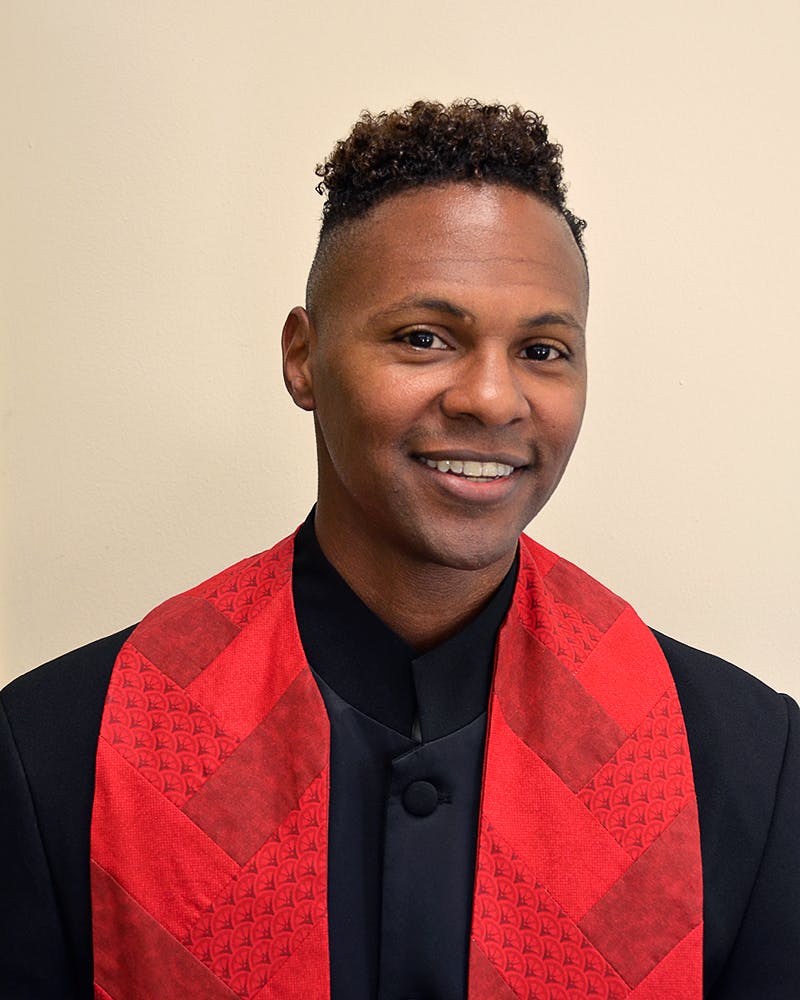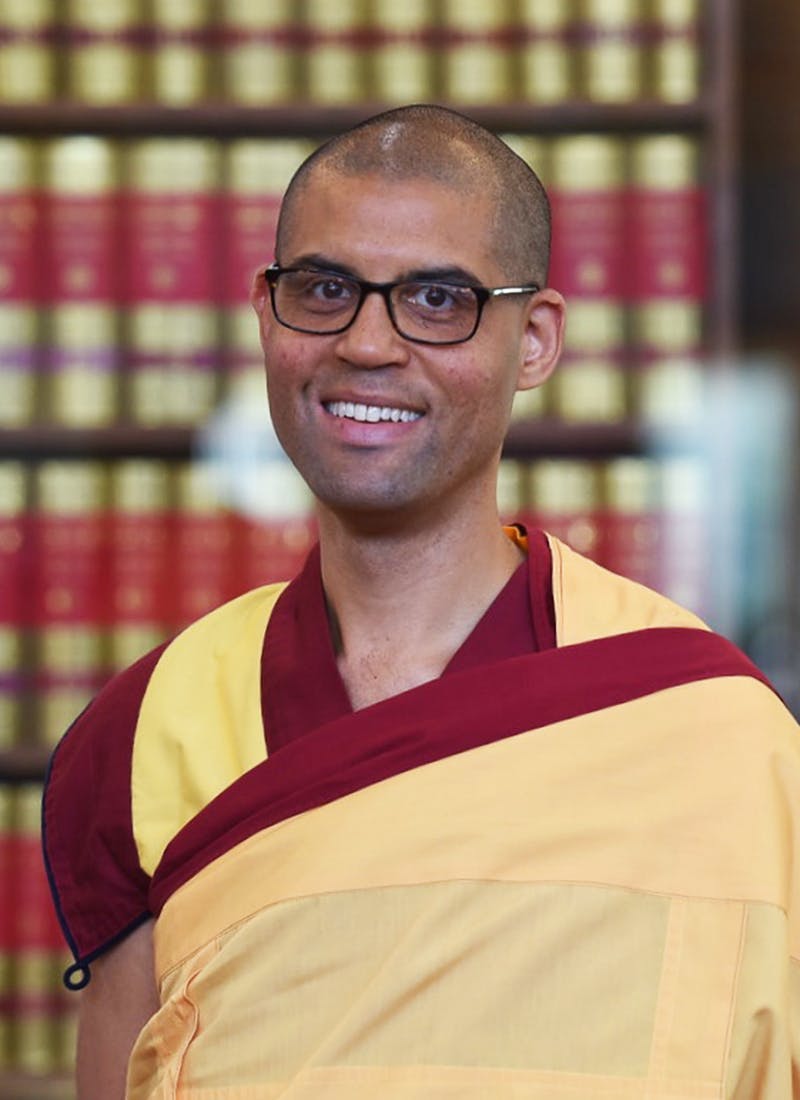“What might be helpful for people during all this stress and anxiety is the idea of lament. Some of the psalms are labeled ‘psalms of lament,’ and these provide a deep and ancient foundation for prayer during times of trouble and injustice. The psalms are prayers that have been written by people who have gone through terrible suffering, and they bring vocabulary to our lament in a way we might not have thought of otherwise.
“Psalm 22 is one that Christians often cling to because its first verse is quoted by Jesus while he’s on the cross. And it has everything: the problems of poverty, physical affliction, injustice, oppression, and violence. The first line, which is quoted by Jesus, is, ‘My God, my God, why have you forsaken me?’ It goes on: ‘Why are you so far from helping me, from the words of my groaning?’ It’s okay to say that you feel deserted by God. I think some people are afraid of offending God, but God can take it. Even Jesus used this prayer.
“There are other ways to lament physically. Put an old piece of pottery in a pillowcase and sling it against the ground, or run as fast as you can, or, as Mister Rogers said, pound on the piano.”
—Reverend Amy Meyer, First Presbyterian Church in Elgin

“The vision of the Bahá’í faith is that there’s one human race. There is a very strong vision of unity of mankind, and one of the most beautiful allegories used to convey that spiritual teaching is a garden that is composed of diverse flowers. Each of them is beautiful and valuable. Within an ecosystem you need to have diversity, and that diversity leads to the strength of the ecosystem. Our faith teaches that world peace is the next stage in the evolution of this planet.
“The Bahá’í faith also believes that racism is the most challenging issue that is confronting America. For Bahá’ís, these convulsions that are happening right now are a process of growth. We are coming out of collective adolescence and are, as human beings globally, beginning to glimpse the age of maturity.
“What gives me hope is that people are taking action: some are marching, others are reading, others are educating and changing themselves. Some are looking at their systems, any groups that they’re part of, and figuring out how can they change. As we examine and question everything, we will be one step closer to re-creating our society in a way that is more aligned with the values of oneness of humanity.”
—Khotan Shahbazi-Harmon, chair, the Spiritual Assembly of the Bahá’ís of Austin
“When I first preached about Black Lives Matter, in 2014, after Michael Brown was killed in Ferguson, some people found it a little bit divisive because they thought, well, all lives matter. Of course all lives matter. But one of the foundations of the Catholic church’s social teachings is what’s called the preferential option for the poor. It doesn’t just refer to monetary poverty; it includes those who are oppressed, those who are forgotten, and those on the margins of society.
“The idea is that Jesus died for everybody, but the people Jesus went to the most were the poor and marginalized of the day. He spoke to the Samaritan woman at the well. He protected a woman whom people were going to stone. Throughout scripture he says, ‘I’m here for everybody, but this individual is more important than everybody else right now because this is the person who’s being oppressed.’ So they should be your first consideration, because that’s who Jesus’s first consideration was.”
—Reverend Ray Cook, St. Mary’s Chapel serving Rice University in Houston
“In Matthew 22, Jesus says, ‘You shall love the Lord thy God with all thy heart, soul and mind. That’s the first commandment. The second is like it: Love thy neighbor as thyself.’ The ultimate message of Christianity is about love. If we could grasp what it means to really love one another, so many of our issues would be null and void.
“As Christians, we are called to speak truth to power. We’re not supposed to witness evil and be silent. You’ve heard that the only thing necessary for the triumph of evil is for good people to do nothing. Many people going to church are ‘good people,’ but their hearts and their minds haven’t been transformed. Their hearts haven’t been changed so that they understand that it takes more than just going to church.
“If you are a white congregation, what are you doing to ensure that everybody has equal opportunities? Being comfortable in your own little world is not really the work of Christ. Christ walked amongst the people. Christ sat with the tax collectors and the people who were least accepted in society. How are you showing the love of Christ to people that don’t necessarily look like you and think like you?”
—Reverend Hannah Hooks, Shorter Chapel African Methodist Episcopal Church in Giddings

“Our mission to heal the world, or tikkun olam, means standing in solidarity with those crying out in pain from injustice. As Jews we have a responsibility to heal the world and make it whole, and that work isn’t finished until everybody’s world is whole. For so long we really struggled—we were the poor, the downtrodden and the oppressed, and that’s what we’re supposed to remember. In fact, the most repeated commandment that God offers us in the Torah is to be kind to the widow, the orphan, and the stranger, for we were strangers in the land of Egypt. In other words, we know what it’s like to be the people without power in society, so we have to be there for the people who are without power in society. And if we have power, we have to give power to the powerless and give voice to the voiceless. It’s an obligation, it’s not a choice.”
—Rabbi Ben Zeidman, Temple Mount Sinai in El Paso
“Fasting in Ramadan means that you break from food and drink voluntarily, so you gain a greater appreciation for those blessings in your life. The idea is that when they’re once again accessible to you on a regular basis, then you’re grateful for them and you make sure that they’re accessible to others. In the midst of this pandemic, we are learning about other blessings that we took for granted: the blessings of gathering, of each other, and of our places of worship. My hope is that when this is lifted from us we will have a greater appreciation for these blessings.
“I think the pandemic is giving us a greater sense of empathy for people that have faced isolation far before COVID. It’s giving us a chance to reflect on other pandemics, like racism, that have been silent, deadly diseases for some quarters of society throughout our existence. So it’s giving us a chance to reflect, to develop empathy, to develop gratitude for blessings that we took for granted.”
—Imam Omar Suleiman, founder and president of the Yaqeen Institute for Islamic Research and resident scholar at the Valley Ranch Islamic Center in Irving

“Galatians 4:4 states that ‘When the fullness of time had come, God sent God’s son to be born of a woman.’ What does that mean, ‘In the fullness of time’? Some translations say, ‘When the time was right.’ So what time is it? When we look at George Floyd and the Black Lives Matter movement and the calls for racial justice, maybe the time has come. Maybe God is asking us not to squander this moment but to rise to the occasion. We’ve been protesting, and the country is listening. Now we need to be able to clearly articulate what we want, and to be bold.
“One of the things that aggravates me about progressive people of faith is that our voices often seem to be muted or timid. The mainline church has suffered tremendously in terms of membership, especially among younger people, probably for the last 25 years. I think one of the reasons is that we have been too quiet on issues of social justice. I teach undergrads and have three children in that generation, and what I hear from them all the time is, Where’s the church? With our environmental problems, mass shootings, women’s issues, LGBT issues, and racial justice issues—where is the church? This is a moment for the church to find her voice again and show the next generation that we are relevant, and we are on the front lines of the most important issues of the day.”
—Reverend Ray Jordan, a United Church of Christ minister and adjunct professor at Southern Methodist University in Dallas
“In the Bhagavad Gita, there is a huge battle between good and evil. Lord Krishna, who is a form of Vishnu, is counseling the most renowned warrior, Arjuna, that it is his duty to fight evil and stand up for righteousness. So Hinduism teaches us to stand up for what is right. We got independence from the British fighting for what is right through ahimsa, meaning nonviolent methods. In the current case of human beings not being treated justly, you have the right and the duty to protest what is unfair. But Hinduism encourages you to protest peacefully. Hinduism also encourages you to do good unconditionally. You should not be doing something because you will get elected or make money, but because it is the right thing to do. This is the dharma, the right path.”
—Partha Sarathi Chatterjee, founding trustee and assistant priest of the Houston Durga Bari Society and a member of the board of directors of Hindus of Greater Houston

“As we face sickness, loss of fortunes, deaths, violence, inequality and oppression, I remind people of the importance of inner peace that is at the heart of Buddhist practice. If we are lacking a certain level of peace within ourselves, all of these things become so much more difficult to deal with. But if we establish peace within our own minds, then we can go about establishing greater peace in our world and our societies: righting wrongs and helping those around us, dealing with our own anxieties, and helping people to feel connected to each other.
“There’s a certain level of contentment that you gain through the practice of meditation and training of the mind that helps you feel less restless, and less like you need to escape from whatever your feelings are or whatever is happening around you. I remember reading an article about how within maybe two weeks of the stay-at-home orders, people had gone back out, based on the cellphone data. And I thought, wow, maybe collectively there’s this discomfort with being with ourselves—such a tendency of always going and doing and escaping in different ways that it’s hard for us to just be with ourselves.
“What I tell beginners is that meditation is about practice. It’s not about being perfect. Any time we learn to do something, we’re always the worst at it in the beginning. Meditation isn’t about being in a perfectly peaceful mental state; it’s actually the practice of developing inner peace, and it can be learned like any skill. Instead of defining our self as someone who can’t do it, or as a really distracted person, we can just think about it as learning to practice. You can sit for five minutes and try, or sit for two minutes and try. It’s good to just take bite-size chunks.”
—Gen Kelsang Menla, resident teacher at Kadampa Meditation Center Texas in Dallas
Conversations have been edited for length and clarity.
- More About:
- Black Lives Matter






